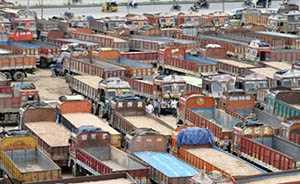Controversial Three New Laws, 'made in Bharat', has hot up Debate in the country.
These three law has come hot on the heels of the three controversial now withdrawn Farm Laws, scrapping of the 370, 35 A in Jammu and Kashmir.
Home Minister Amit Shah, has once again set the ball rolling in the country.
Shah has expedited the swift passage of these three crucial laws- the Bharatiya Nyaya Sanhita (BNS), Bharatiya Sakshya (BS), and Bharatiya Nagarik Suraksha Sanhita (BNSS), made in Bharat and rooted in tradition.
These laws are touted as replacements for the Indian Penal Code (IPC), Code of Criminal Procedure (CrPC), and the Indian Evidence Act, respectively.
The BNS, which is said to replace the IPC, has faced criticism from opposition leader Kapil Sibal, who claims that "90% of its content is a direct copy of the IPC, translated into Hindi".
The Home Minister defended the move, attributing the need for change to the harshness of colonial-era laws.
Though the common feeling is that Home Minister has a point, but the Left school of thought, on the face of it, say and think otherwise.
The controversial Section 106(2) of the BNS, dealing with hit-and-run cases, recently sparked a nationwide truckers' strike.
But the strike ended abruptly with truckers' unions not giving any plausible logic over as to why they went on a lightening strike and they ended it abruptly.
Their protest, however, was specifically targeted against the severe penalties proposed in the law, with a 10-year imprisonment and a hefty fine of Rs 7 lakh for such offenses.
In response to the concerns raised by truckers regarding the provision of 10 years imprisonment and fines under Section 106(2) of the Bharatiya Nyay Sanhita, the Government of India has taken decisive action.
Following extensive deliberations with representatives from the All India Motor Transport Congress, it has been determined that the newly proposed laws and provisions have not yet been implemented.
The Government of India, in a collaborative effort with the All India Motor Transport Congress, has decided that the enforcement of Section 106(2) of the Bharatiya Nyay Sanhita, entailing 10 years of imprisonment and fines, will only be pursued after thorough consultation with the transport representatives.
In light of this development, the Himachal Pradesh (H.P.) police is issuing an appeal to all truck and motor transport unions, as well as individual drivers, to resume their respective duties.
The assurance from the government that the implementation of the stringent legal measures will be subject to further discussions reflects a commitment to addressing the concerns and grievances of the trucking community.
Critics argue that the hasty enactment of these laws, without adequate parliamentary debate, mirrors the approach taken with the now-repealed farm laws.
Concerns have been raised about the potential consequences of these laws, with comparisons drawn to the earlier agrarian unrest.
The timeline for the nationwide implementation of these laws is projected to extend until January 2025.
The government faces calls to revisit and amend certain provisions, notably in response to the truckers' strike, underscoring the importance of thoughtful legislation to avoid unforeseen consequences.
As the nation grapples with these legal changes, discussions persist on whether the new laws genuinely represent an evolution or merely an adaptation of existing frameworks.
The controversy surrounding the passage of these laws highlights the need for thorough parliamentary deliberation and public discourse.
At all events it is expected that three new laws would reorient to the new needs and aspiration liberating "old" from colonial clutches of the British and the company Bahadurs'- a mind-set that still persists in the country.







